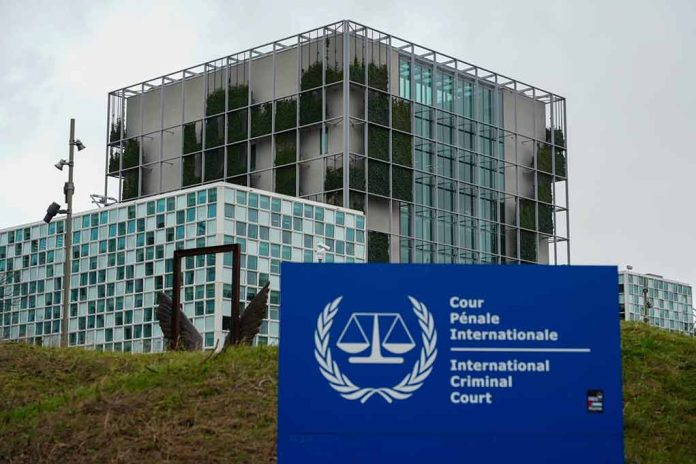
President Trump hammers ICC judges with sanctions after they dared to target American military and Israeli leaders, freezing their assets and blocking them from US soil in a bold defense of national sovereignty.
Key Takeaways
- The Trump administration imposed sanctions on four ICC judges who approved investigations into US military actions in Afghanistan and issued arrest warrants for Israeli leaders including Prime Minister Netanyahu.
- The sanctions freeze all US-based assets of the judges and prohibit American citizens from providing funds, goods, or services to these individuals.
- Secretary of State Marco Rubio declared the sanctions necessary to protect US and Israeli sovereignty against the ICC’s “illegitimate actions.”
- Neither the United States nor Israel are signatories to the Rome Statute that established the ICC, raising questions about the court’s jurisdiction.
- Prime Minister Netanyahu’s office praised Trump’s action as standing up for “the right of Israel, the United States and all democracies to defend themselves against savage terror.”
Trump Administration Defends US and Israeli Sovereignty
The Trump administration has taken decisive action against four judges from the International Criminal Court who approved investigations targeting both American and Israeli officials. Through Executive Order 14203, President Trump authorized sanctions that freeze any US-based assets belonging to these judges while also barring American citizens from providing them with financial or material support. The sanctions represent a firm response to what the administration views as unacceptable overreach by an international body against sovereign nations that never consented to its jurisdiction.
“The United States will take whatever actions we deem necessary to protect our sovereignty, that of Israel, and any other US ally from illegitimate actions by the ICC,” Stated US Secretary of State Marco Rubio.
The targeted judges include Beti Hohler and Reine Alapini-Gansou, who were involved in issuing arrest warrants for Israeli Prime Minister Benjamin Netanyahu and former defense minister Yoav Gallant over Israel’s military operations in Gaza following the Hamas terror attacks. The other two judges, Luz del Carmen Ibanez Carranza and Solomy Balungi Bossa, authorized investigations into alleged US war crimes in Afghanistan, directly challenging American military operations and personnel.
ICC’s Jurisdictional Overreach
The sanctions highlight a fundamental dispute over the ICC’s authority. Neither the United States nor Israel has ratified the Rome Statute that established the court in 2002, meaning they never consented to its jurisdiction. Despite this clear lack of legal standing, the ICC has pursued cases against both nations while the Palestinian Authority, which is not a recognized sovereign state by many nations, has been permitted to join the court and bring complaints against Israel.
The Trump administration’s position aligns with longstanding US policy that American military personnel and officials should be accountable only to the US judicial system, which has robust mechanisms for investigating and prosecuting misconduct. Similarly, Israel maintains that its independent judiciary is fully capable of addressing any allegations of war crimes, making ICC intervention not only unnecessary but a violation of national sovereignty.
International Reactions and Implications
According to Prime Minister Netanyahu’s office issued a statement of gratitude following the announcement: “Thank you President Trump and Secretary of State Rubio for imposing sanctions against the politicized judges of the ICC. You have justly stood up for the right of Israel, The United States and all democracies to defend themselves against savage terror.”
The ICC, predictably, has criticized the sanctions as an attempt to undermine its independence. However, the court’s selective prosecution choices have raised serious questions about its impartiality. While pursuing cases against the US and Israel, both democracies with functional judicial systems, the ICC has been noticeably slower to act against regimes with far worse human rights records but better political connections.
Secretary Rubio directly challenged US allies who support the ICC, stating, “I call on the countries that still support the ICC, many of whose freedom was purchased at the price of great American sacrifices, to fight this disgraceful attack on our nation and Israel.” This powerful appeal reminds these nations of America’s historical role in defending their liberty and asks them to reciprocate by opposing the ICC’s overreach against US and Israeli interests.
This decisive action by the Trump administration demonstrates a commitment to protecting American sovereignty and standing by allies like Israel when they face unjust international persecution. By imposing these sanctions, President Trump has sent a clear message that the United States will not allow international bodies to dictate terms to sovereign nations, especially when those nations have never consented to their jurisdiction.



